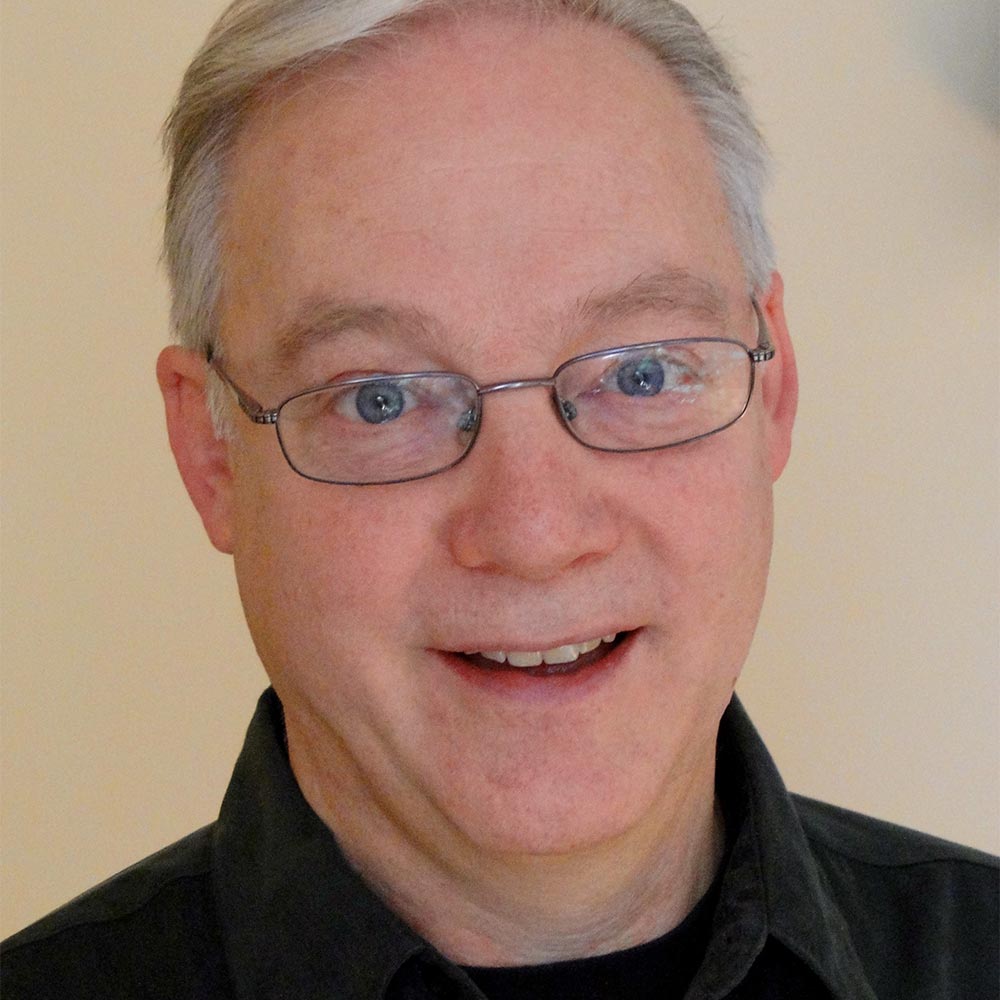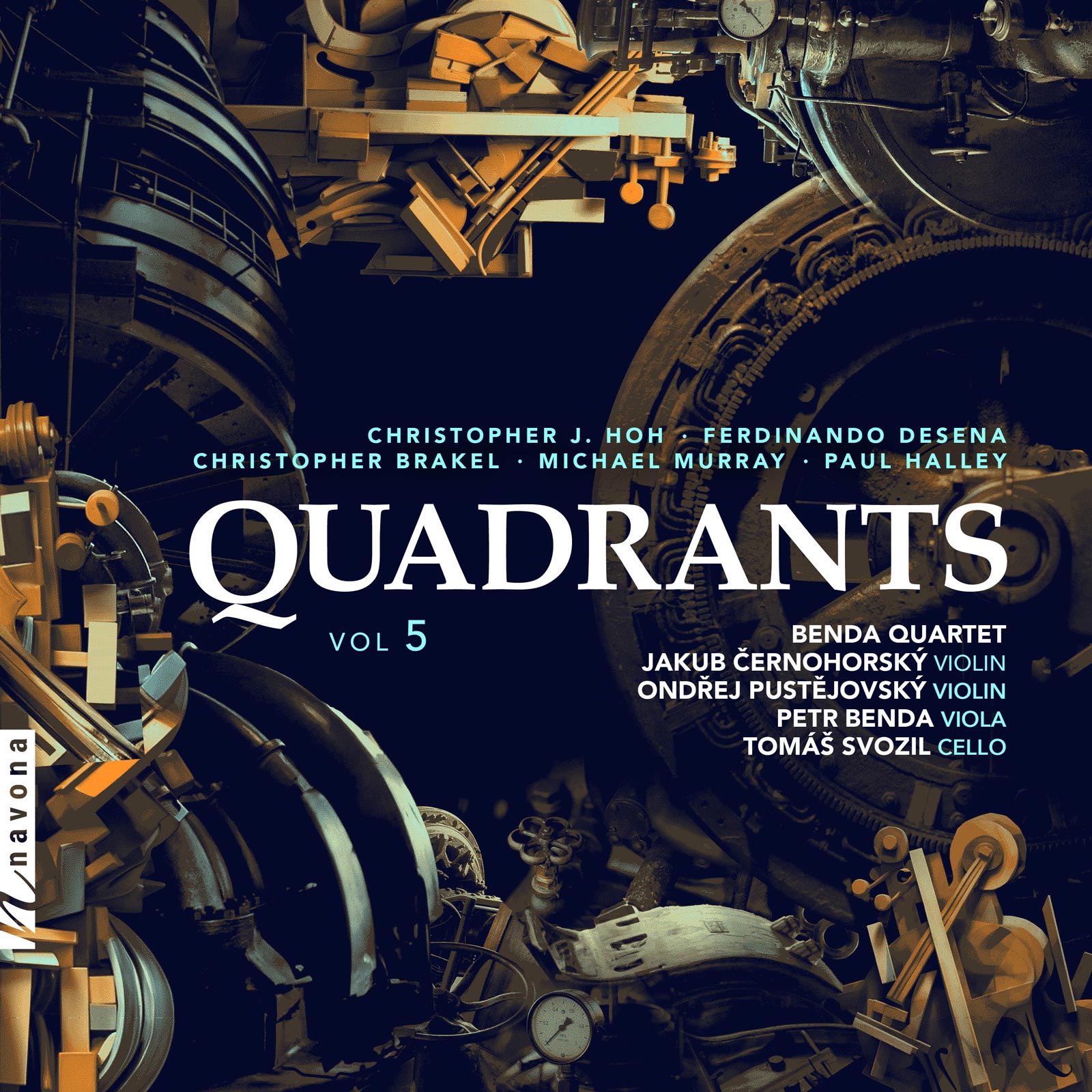
The award-winning Benda Quartet assembles on QUADRANTS VOL. 5 to deliver a stunning, razor-sharp collection of contemporary string works. Several composers offer a wide range of sounds and emotions in this body of work, ranging from warm, elegant expressions to high-octane passages and more.
PARMA Senior Content Writer Shane Jozitis recently connected with the composers of QUADRANTS VOL. 5 to learn more about the inspirations, processes, and realizations behind their works. Read on for an exclusive deep dive into the creative minds of Christopher J. Hoh (CJ) and Ferdinando DeSena (FD).
If your string quartet piece on QUADRANTS VOL. 5 were the soundtrack for a film, what genre or theme do you believe it would best accompany?
CH: This is fun to ponder! I’d say The Patriot would work as a film with my piece, Let Tyrants Shake, as a soundtrack. First, there’s the Revolutionary War connection. This quartet’s point of departure is the song Let Tyrants Shake, the runaway hit of those days by William Billings. But also, the film should be an epic. These movements cover a wide range of emotion, just like a great movie. Now, my music is modern, definitely not 18th Century! But it goes from energetic to introspective, tense harmony to calm, fugal to homophonic, plus there’s a whole movement called “action,” so I think we could find passages to suit any scene. Well, I guess not slapstick… Or maybe my music would inspire the director to shoot something new. Why not?
FD: A silent journey through the mind, reflections, emotional landscape, Maybe something like an Ingmar Bergman film or a silent film adventure/romance.
When dealing with complex emotions or ideas in your compositions, how do you use the limitations of four instruments to your advantage, conveying depth and nuance within the simplicity of a quartet setup?
CH: Four instruments is no limitation in my book, especially with fine players like the Benda Quartet. One advantage of string instruments is how well they sound together in various combinations, so that opens up possibilities. Also, they have great range in pitch and playing techniques. Of course the composer has to think about all this before writing, considering where to use which approach in order to achieve variety yet balancing it against coherence for the whole work. I think my best answer is the music itself. Listen and you’ll hear depth, nuance, and emotion throughout — at least I hope so. Also, after the short introduction, each movement features a different member of the quartet; and every movement has a distinct character. I’ve written a lot of choral music over the years, often for four unaccompanied voices, so I am comfortable exploring a range of feeling with a small ensemble.
FD: For me it all starts with sonority – a scale, a chord, a pitch set, its transpositions and voicing possibilities. I think all my melodic and harmonic ideas evolve from this. So it’s kind of “color” that drives my composition. As for limitations, the string quartet has great depth and breadth of expression, texture, movement, and articulation. It seems to me one of the least constrained musical forms.
What famous (or perhaps relatively unknown) work for string quartet has made the greatest impact on you, and how might that piece have influenced the work you’ve presented on QUADRANTS VOL. 5?
CH: I try in fact not to listen to others’ work before I compose in order to keep my inner ear clear for my own ideas. I have loved fabulous works over the years by Shostakovich, Beethoven, Ravel, Dvorak, and of course Barber (that Adagio!) as well as Ives, Piston, and Sessions. It’s fine music and they each forged their own path. Really, I can’t think of a great 19th or 20th century composer who did not write for string quartet, including many Americans. I hope I have internalized some of that corpus. But to answer the question, there was not one work that had an impact on me or this piece, rather the whole intimidating tradition. As a result, I stayed away from this genre. Then, the rise of fascism in our world gave new resonance to the words “let tyrants shake their iron rod… we’ll fear them not,” i.e. the lyrics of Billings’ song, Chester. That’s when I thought, “OK, that concept could inspire a new string quartet,” i.e. I have something new that’s worth saying. Now having overcome my hesitation, I look forward to writing more string music when the opportunity comes.
FD: I am always inspired by profundity of the late Beethoven Quartets, but also the expression of wit and humor found in Haydn, and expressionist angst of Schoenberg and the profundity. I also reference Goethe’s description of the quartet as a musical conversation, like “listening to four rational people conversing among themselves.”
Eloquent, precise, and hypnotic, QUADRANTS VOL. 5 is a crystal-clear reflection of the musical and technical heights of the string quartet genre. In your work, how did you focus on expanding upon the time-tested conventions of the genre, or did you seek to foster something entirely new?
CH: I think it’s important to strike a good balance, to fall mostly between far out avant-garde and boring same-old same-old. One new thing here is deconstructing a four-phrase song into four movements for a small ensemble. Although some composer has probably done so before me, it’s not an approach to form that I had encountered. Yet on the other hand, the architecture of the movements is somewhat traditional: fast intro – slow – folk dance – fugue – fast. Harmonies in places are wide-ranging, but the key relationships among the movements are conventional. Phrases turn and pitches sound in surprising ways at times, yet the melodic line stays recognizable. Techniques like spiccato, pizzicato, sfp, cross relations, and harmonics come into play, widening the sound palate, but this piece does not venture into extended sound-making like knocking on the instrument or buzzing its strings. So I suppose this puts me in the time-tested conservative camp for the music, despite its progressive antifascist inspiration.
FD: I really just want to express something in the medium that fits somewhere within the global zeitgeist of the string quartet genre that also portrays my own musical voice.

“Full of charm and shapely allure” (Opera News) and “a tapestry of immense grace” (Textura) are some of the praises Christopher J. Hoh has received for his music. He grew up in Reading PA and was influenced as a young singer and accompanist by great works under conductors in Pennsylvania, New York, and Washington. He has been in Alice Parker’s composer seminar as well as workshops with Jean Berger, Daniel Moe, Robert Page, and Craig Jessop.

Ferdinando DeSena is a Miami-based composer who was born in Brooklyn NY. His earliest musical experiences were with neighborhood pop, and doo–wop groups. He worked as musician in Ithaca NY for 13 years, playing in several regional bands as keyboard player and lead singer. His final group was Uptown Revue, which he led for seven years

